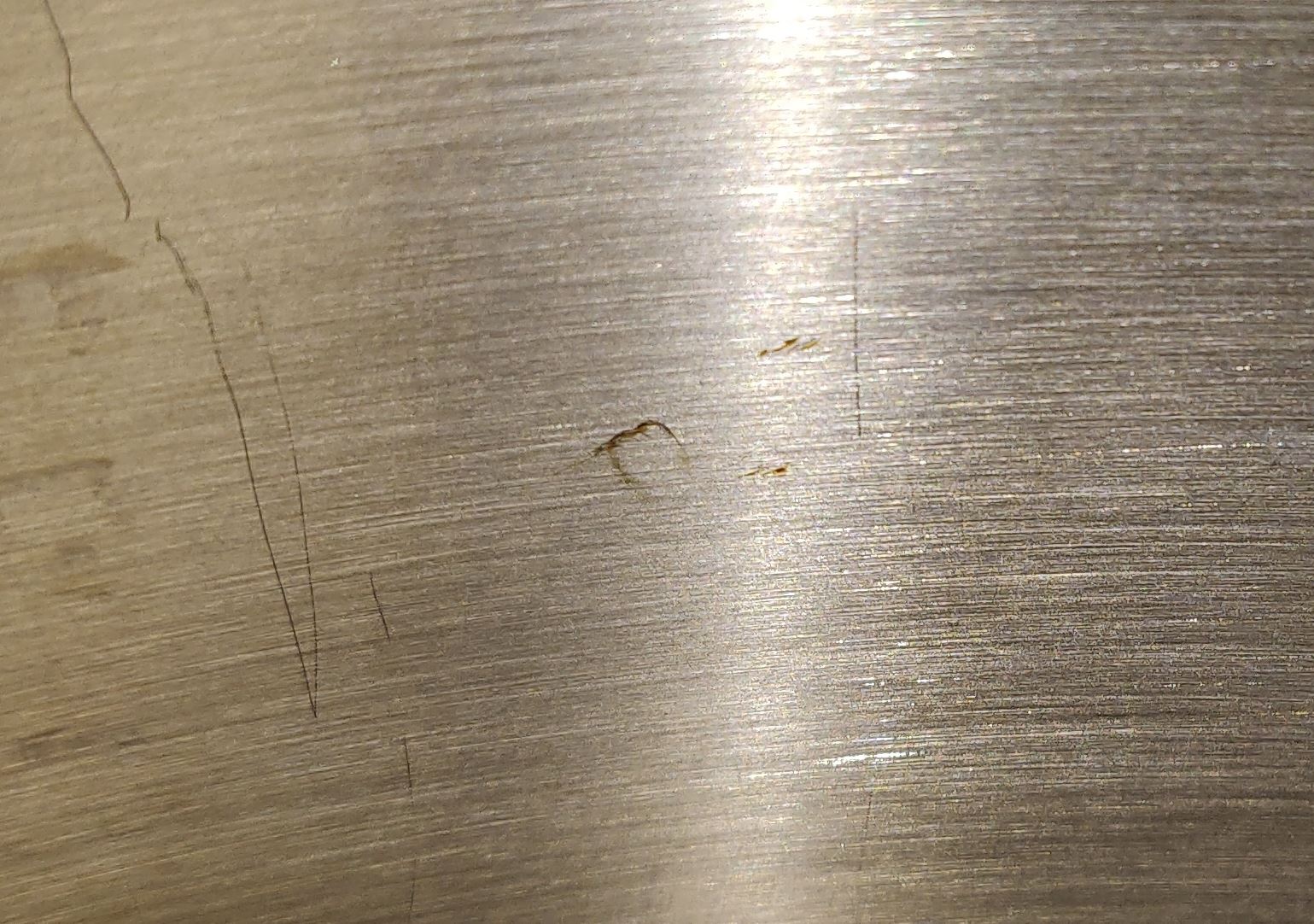kondi
Member
- Joined
- Mar 28, 2020
- Messages
- 18
- Reaction score
- 7
I am using a BIABasket in my 304 SS brewing kettle and I realized that taking the basket in and out makes lot of scratches on the inner surfaces of the kettle. As I read, usually a few small scratches are OK, but I have a mark that is a bit deeper and it has a brownish tint. I am afraid it is rust, could it be? Or what else is it? Can I treat/fix it somehow?
On the attached photo you can see my (sadly) usual, longer vertical scratches, but in the middle, there are three marks that look suspicious. I think it was made by the legs of the basket.

On the attached photo you can see my (sadly) usual, longer vertical scratches, but in the middle, there are three marks that look suspicious. I think it was made by the legs of the basket.



![Craft A Brew - Safale BE-256 Yeast - Fermentis - Belgian Ale Dry Yeast - For Belgian & Strong Ales - Ingredients for Home Brewing - Beer Making Supplies - [3 Pack]](https://m.media-amazon.com/images/I/51bcKEwQmWL._SL500_.jpg)























































